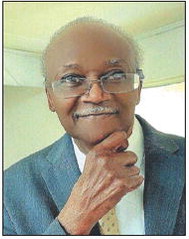Teachable Moment


the Teachable Moment
Why can’t Critical Race Theory solve the problem of racism?
Critical Race Theory is based on the struggle for power – and how to cause conflict between races in order to dominate and subjugate an entire population. Legal scholar Kimberlé Crenshaw – who coined the term ‘CRT’ – notes that Critical Race Theory “cannot be confined to a static and narrow definition but is considered to be an evolving and malleable practice” (meaning it can be defined to suit any purpose). “CRT recognizes that racism is not a bygone relic of the past, . . . the legacy of slavery, segregation, and the imposition of second-class citizenship on black Americans. . . continue to permeate the social fabric of this nation” (meaning that CRT is the gift that will keep on giving).
Basic tenets of CRT: All whites are racists; systemic racism in the U.S. is the cause of black problems, and slavery explains all the ills in the black community. Diversity trainers in schools and businesses rant about white supremacy, blame all whites for actions committed by past generations, and preach that the United States was created by whites to oppress nonwhites.
The culture emerging is one marked by hostility, division, and a false sense of moral superiority, where personal responsibility is unacceptable so people must blame their problems on others, and where an individual’s identity is defined by their racial group, which is always in conflict with other racial groups. In response, state legislatures around the nation are passing laws banning schools from instructing students that one race bears responsibility for the past actions against another, that the United States is fundamentally racist, or that a person is inherently privileged or oppressed due to their race.”
As suggested by Dr. Martin Luther King, Jr., the solution to get rid of racism is individual heart and mind transformation using Christian principles in which people of all colors and backgrounds place value on the character of the individual, not on the group. He said, “I have a dream that my four little children will one day live in a nation where they will not be judged by the color of their skin, but by the content of their character.”





